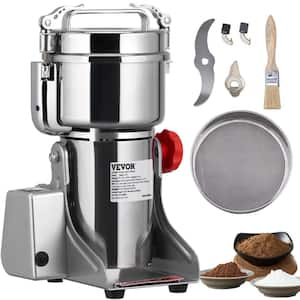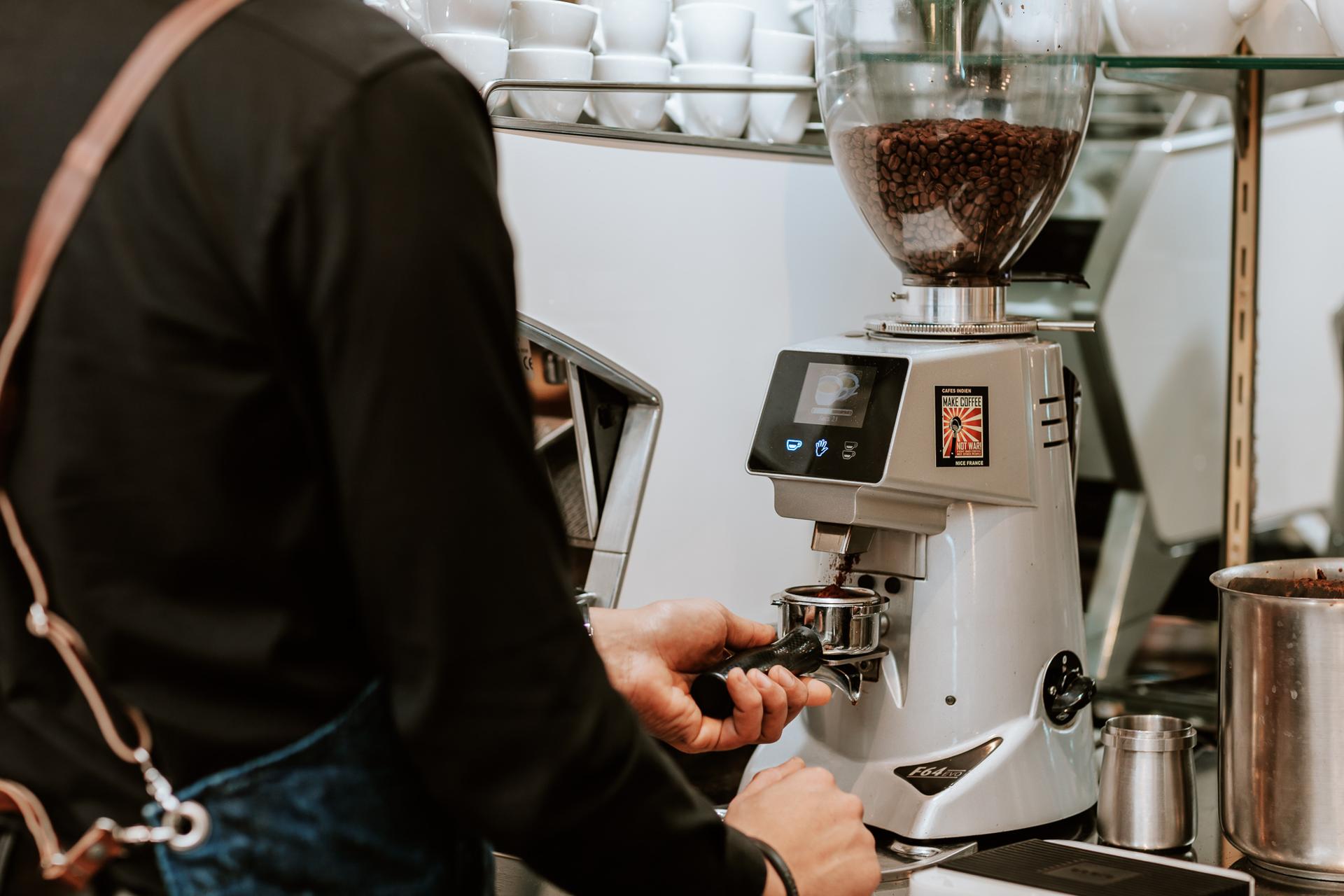Increase Productivity with an Industrial Coffee Grinder in Your Business
Wiki Article
Industrial Coffee Mill Guide: Boost Performance and Top Quality
In the affordable landscape of coffee production, choosing the appropriate industrial coffee mill plays a crucial role in enhancing both effectiveness and product top quality. Comprehending the subtleties of various grinder types and vital features-- such as adjustable work setups and durable building-- can substantially affect the final flavor profile of the coffee. Additionally, the optimization of the grinding process, paired with diligent maintenance, is vital for sustaining efficiency in time. As we check out these important elements, it becomes apparent that the ramifications expand beyond plain tools selection, impacting general business success in ways that require closer assessment.Understanding Mill Kinds
When selecting an industrial coffee mill, understanding the different types readily available is crucial for optimizing both taste extraction and operational performance. Both main kinds of mills are blade mills and burr mills. Blade mills utilize sharp blades that chop coffee beans right into irregular sizes, resulting in irregular extraction and potentially unfavorable tastes. While blade grinders are frequently more suitable and budget friendly for small operations, they are generally not recommended for commercial use.
Eventually, selecting the best kind of grinder is integral to preserving quality and effectiveness in coffee production, making it crucial for businesses to buy high-grade burr grinders for optimal outcomes.
Trick Features to Think About
Picking an industrial coffee grinder needs cautious factor to consider of several vital features that can dramatically affect both performance and the overall coffee experience. One of the primary elements to review is the grinding device. Burr grinders are generally favored over blade grinders, as they offer a constant grind size, which is vital for optimal extraction and flavor.One more important feature is the grinder's ability. A versatile grinder with multiple setups permits you to customize the grind size to different developing techniques, improving the coffee's taste account.
Assess the mill's noise degree, especially in a busy coffee shop or production setting, where extreme sound can be disruptive. Spending in a grinder that stabilizes these features can considerably boost both functional efficiency and the top quality of the coffee served.
Optimizing Grinding Process
To attain the very best results in coffee prep work, optimizing the grinding process is essential. The grind dimension considerably affects removal, taste, and general quality of the brewed coffee. Various developing approaches require specific grind sizes; for example, coffee requires a fine work, while French press visit demands a coarse texture. Comprehending the relationship between grind dimension and developing approach is the primary step in optimization.


In addition, monitoring the grinding speed can maximize the procedure. Slower grinding often creates less heat, preserving Source delicate tastes and scents. On the other hand, quicker grinding may generate extreme warmth, adversely affecting the coffee's high quality.
Maintenance and Treatment Tips
Proper maintenance and treatment of commercial coffee grinders are vital for making sure ideal performance and longevity. Routine cleaning is the foundation of upkeep; residue buildup can affect flavor and grinding efficiency. It is suggested to cleanse the grinder after each use, wiping down the exterior and eliminating any coffee premises from the burrs.Additionally, evaluate the grinding burrs for deterioration. Dull burrs can compromise work consistency, so they need to be replaced as essential. Industrial Coffee Grinder. Periodically calibrating the mill is likewise essential, as this maintains the desired work size for various brewing approaches
Lubrication of moving components must be done according to the manufacturer's specifications, as this decreases friction and extends the life of the tools. It is necessary to utilize food-grade lubricants to guarantee safety and security and compliance with health laws.
Lastly, maintain the grinder in a secure and completely dry environment to stop rust and rust. By sticking to these maintenance and care tips, drivers can boost the efficiency of their industrial coffee mills while ensuring Related Site top notch outcome and prolonged functional life.
Roi Analysis
Evaluating the return on investment (ROI) for commercial coffee mills is important for organizations looking for to maximize their coffee production abilities. An extensive ROI analysis assists establish the financial viability of investing in high-grade grinders, enabling companies to weigh the first prices versus potential gains.Evaluate the acquisition cost of the grinder, consisting of installment and any type of necessary adjustments to existing infrastructure. High-performance grinders typically lead to minimized grinding time and increased throughput, which can substantially enhance productivity.
Furthermore, take into consideration the effect on product quality. Industrial Coffee Grinder. Superior mills generate an even more constant work size, which can enhance taste accounts and consumer satisfaction, inevitably driving sales. By enhancing the high quality of the end product, services can justify higher prices, causing increased profits
Conclusion
In summary, an industrial coffee grinder plays a crucial role in improving both efficiency and item top quality within coffee production. Inevitably, the tactical investment in a trusted grinder adds substantially to enhanced income and competitiveness in the coffee industry.In the competitive landscape of coffee production, picking the appropriate industrial coffee mill plays a critical role in boosting both performance and item high quality. The two key types of mills are blade mills and burr grinders. Within the burr mill classification, there are flat burr mills and cone-shaped burr grinders, each with its advantages. Burr grinders are normally chosen over blade grinders, as they provide a consistent grind dimension, which is essential for optimum extraction and flavor.
In summary, a commercial coffee mill plays a pivotal duty in improving both efficiency and item quality within coffee manufacturing.
Report this wiki page